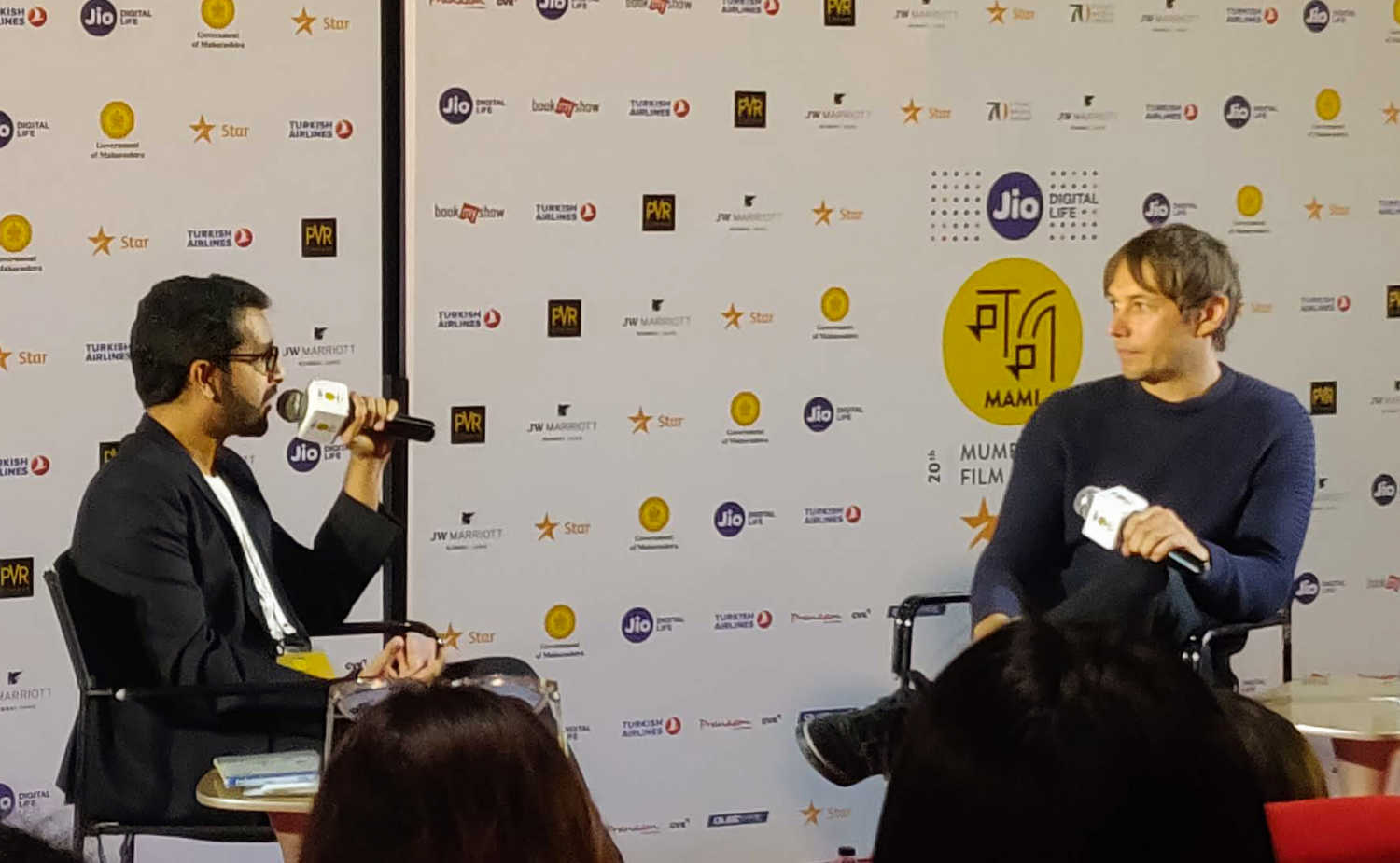In a masterclass at this year's Jio MAMI Mumbai Film Festival, Baker asserted that he wasn't inclined to follow in the path of other independent filmmakers who eventually broke into Hollywood mainstream.
Hollywood films influenced me growing up, but those aren't the films I want to make: Sean Baker
Mumbai - 02 Nov 2018 16:07 IST
Updated : 16:07 IST


Suparna Thombare
Director of independent feature films like Starlet (2012), Tangerine (2015) and The Florida Project (2017), Sean Baker has emerged as an important filmmaker on the American independent cinema scene over the last few years, exploring social and political themes through personal stories of his characters.
Last year, his film The Florida Project received a great response when it was screened at the 19th Jio MAMI Mumbai Film Festival. This year, the filmmaker made his first visit to India to conduct a masterclass at the festival. During his conversation with Kapoor and Sons director Shakun Batra, he spoke about what he plans to do next.
While many independent filmmakers like Taika Waititi and James Gunn have eventually moved to tentpole cinema, Baker isn't interested in taking the same path.
"I think I am too old for that," he joked. "It took me a long time to break into the industry. And now that I am at the place where I am comfortable and sort of happy with the films that I am making... very happy to be in a position where financing is coming my way, where it is not the fight that it used to be. So if I can continue along these lines and make films that are important and stories that need to be told I am happy where I am at," he said.
The filmmaker is said to be busy with the script for his next film based on the opioid epidemic.
Hollywood, though, has been his major influence on him growing up and he loves watching the big ticket films.
"I am a cinephile and I am a fan of all genres. I love going to see those big Hollywood blockbusters. I am sure they had a big influence on me because I grew up with them. But those aren't the films that I want to make or be able to make. It was near the end of high school that I started becoming more aware of world cinema. I had been planning to go to film school for a very long time, with most of my film education being Hollywood mainstream. So to go to NYU to make the next Die Hard or Robo Cop was my goal then. It was slowly changing at the time," says Baker.
The filmmaker explained how exposure to world cinema while studying films at in New York completely changed his goals.
"It was around the senior year of school when Spike Lee made Do The Right Thing (1989) and Jim Jarmusch started making a huge impact with Mystery Train (1989). And with these films I started seeing something different out there. There are other ways to (make films), there are other stories, other aesthetics etc. Started getting intrigued by that stuff and started studying that on the side. And going to NYU, Manhattan is your classroom. At the time you had restrospective theatres, video stores that had basically every title available, the anthology film archives, the art house fare that would be difficult to see anywhere else, Lincoln Centre etc etc. It was in the sophomore year when I stumbled on the cover a VHS box Eric Rohmer's Claire's Knee (1970). I was never really aware of Rohmer. And then I said I am going to French new wave, then Italian neo-realism, then British social realism," Baker recalled.
During this exploration phase British writer-director Mike Leigh, whose aesthetic has been compared to the sensibility of the Japanese director Yasujirō Ozu, played a major role in defining Baker's sensibilities. And Baker's treatment of socio-political subjects do reflect that.
"At the time also Mike Leigh came out with Naked. And I felt, for some reason, drawn to it. I really wanted to dive deep into his filmography. And I realised this guy's career... I admire this guy for everything he is doing, tackling social and political issues, and yet telling personal stories. And it all comes down to John Cassavetes, godfather of independent films. So by the time I graduated NYU four years later my mindset had almost completely changed, knowing that I was going to make my first independent [film] as fast as possible," he said, explaining what caused his final shift from Hollywood mainstream to independent cinema.
Related topics
MAMI

